Are you tired of sifting through confusing phone bills filled with unexpected charges and inaccuracies? You're not aloneâmany people face the frustrating challenge of managing their monthly statements. In this article, we'll walk you through crafting an effective letter to dispute those irritating billing errors and reclaim your hard-earned money. So, grab a cup of coffee and let's dive into this essential guide on taking control of your phone bill!
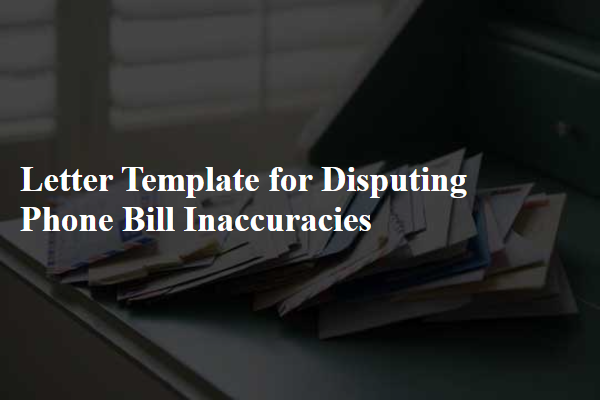
Account information and contact details
Disputing phone bill inaccuracies involves addressing specific account details and ensuring adequate communication channels are established for resolution. Account information includes unique identifiers such as the account number (e.g., 123456789) associated with the service provider (e.g., Verizon, AT&T). Contact details require inclusion of the service address (e.g., 123 Main St, Springfield, IL) and a reliable phone number (e.g., (555) 123-4567) for direct correspondence. Clear identification of discrepancies on the bill (for example, unexpected charges or incorrect data usage) is crucial for a swift resolution. Notable events, including the billing cycle dates (e.g., September 1, 2023, to September 30, 2023), also support the dispute process, offering context for the inaccuracies being challenged.
Clear explanation of dispute
A phone bill may contain inaccuracies such as incorrect charges, unrecognized fees, or inconsistent usage records. Common discrepancies include unexpected international call rates, erroneous data overages, or unapproved premium service subscriptions. Customers often find it challenging to verify these charges without detailed itemization, especially when bills exceed previous amounts by a significant percentage. Phone service providers, like Verizon or AT&T, typically offer customer service support for dispute resolution, but resolution may require timely documentation, including billing statements, contract agreements, and communication records. Accurate record-keeping aids in clarifying individual usage and identifying billing errors.
Relevant supporting documentation
Inaccurate phone bills from telecommunications providers can result in financial discrepancies for consumers. For instance, billing errors related to call duration, unexpected charges, or erroneous charges for premium services can lead to inflated totals. Supporting documentation, such as itemized billing statements (which detail each service used), previous billing records (which provide historical reference for comparison), and screenshots of service agreements or promotional offers (which often outline expected pricing), can substantiate a dispute. Highlighting these discrepancies typically leads to an investigation by customer service departments or billing teams within telecom companies, often resulting in corrections or refunds, thus ensuring fair billing practices are upheld for consumers.
Request for specific action or resolution
Inaccurate phone bills can lead to significant financial discrepancies for consumers, often stemming from erroneous charges associated with services such as data plans, call minutes, or additional fees. For instance, a consumer noticing a $75 overcharge on a Verizon wireless bill in September 2023 may find discrepancies in the recorded usage, possibly due to billing errors in feature adjustments or account plan changes. Essential to resolving these disputes is thorough documentation, including previous bill statements, account agreements, and clear records of service usage. Engaging with customer service representatives through formal complaints can escalate the situation for timely resolutions, seeking credits or corrected invoices. In regions like California, where consumer protection laws are stringent, addressing these inaccuracies promptly can safeguard against further financial impacts.
Deadline for response and follow-up plan
Disputing inaccuracies in a phone bill requires clear communication. For example, the bill dated August 2023 from Verizon may show unexpected charges totaling $150 for roaming data usage. Review the terms of your plan, which usually outlines allowable data usage. Customers often face discrepancies related to international calls or text messaging rates not matching the agreed-upon contract. Specify a deadline for a response, typically 30 days from the date of the dispute letter, to prompt a timely investigation. Outline a follow-up plan, including potential escalation to the Federal Communications Commission (FCC) if the issue remains unresolved, ensuring the phone company is aware of your seriousness regarding accurate billing.

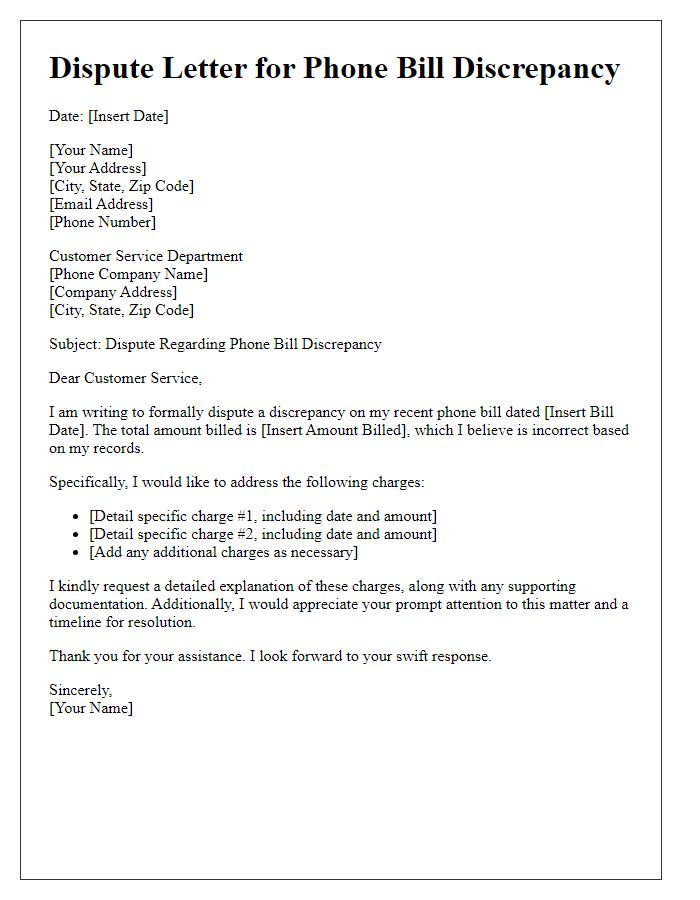
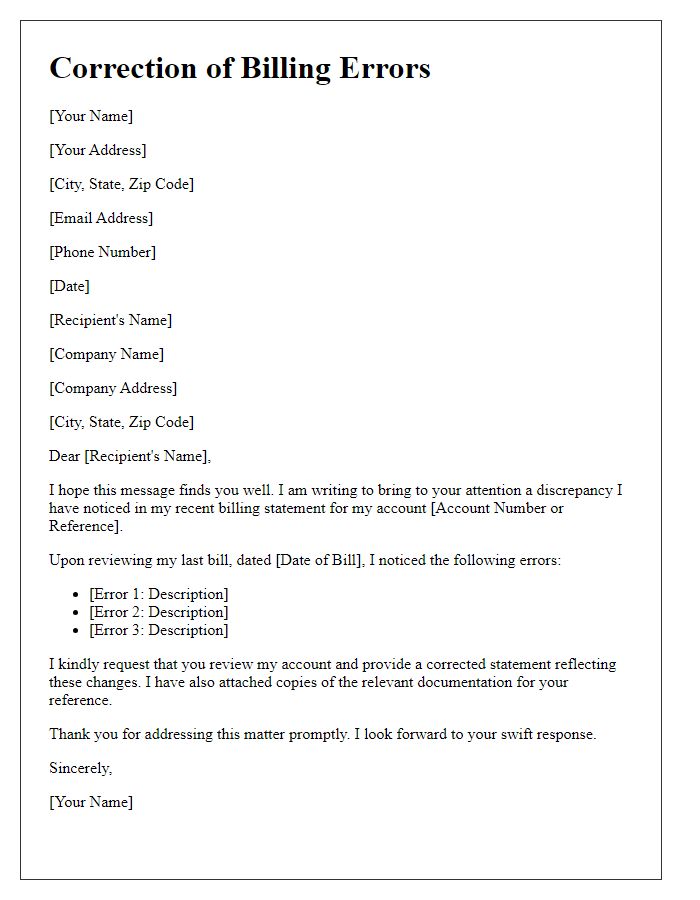
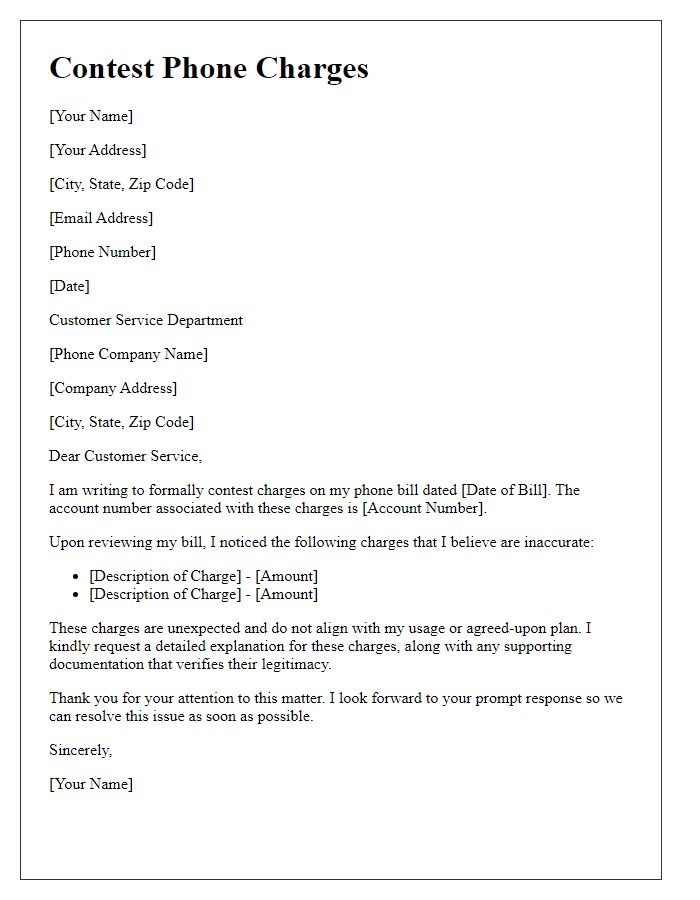
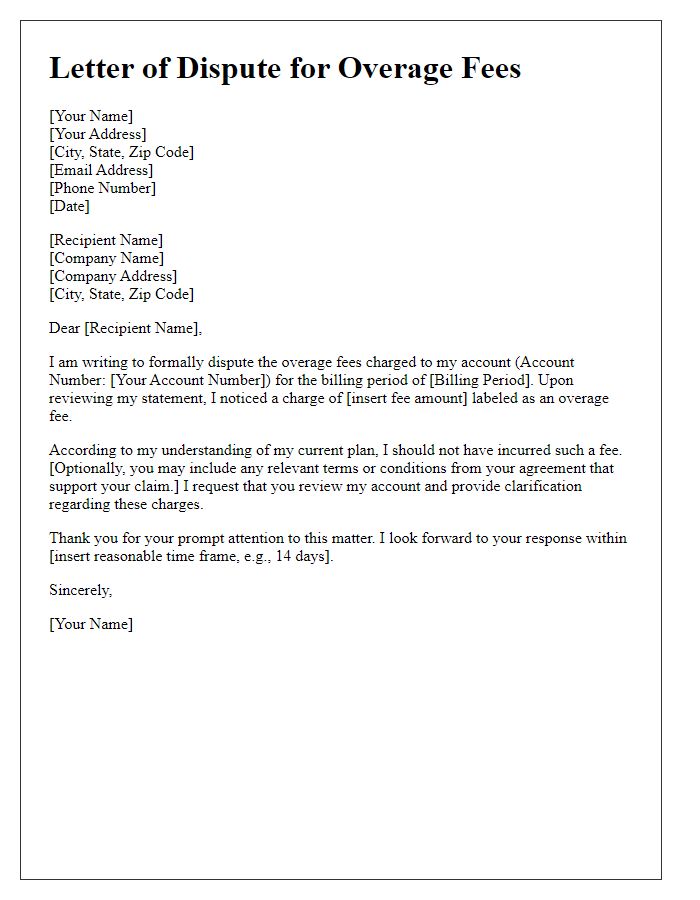
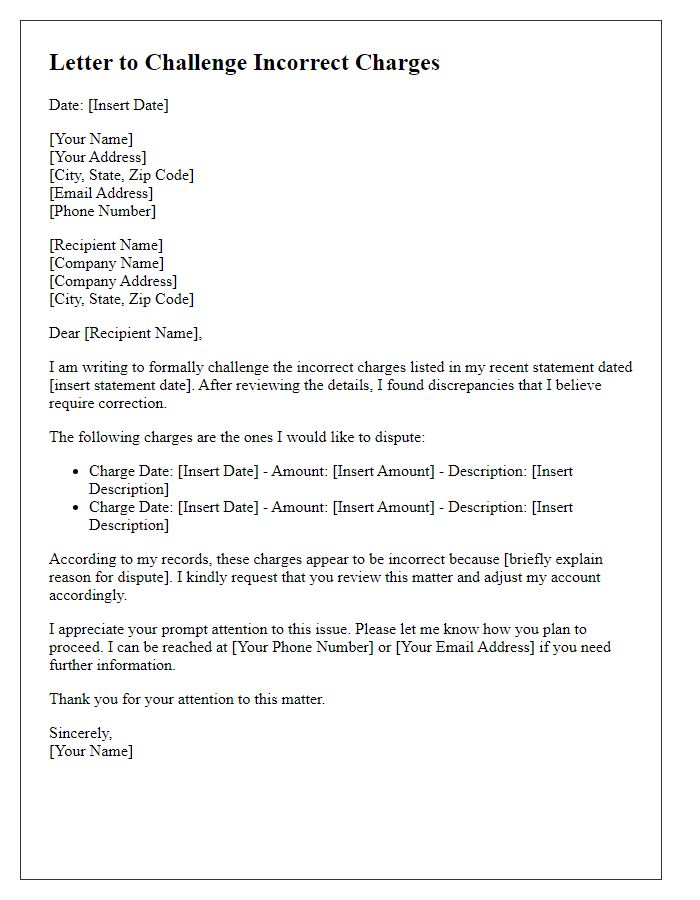
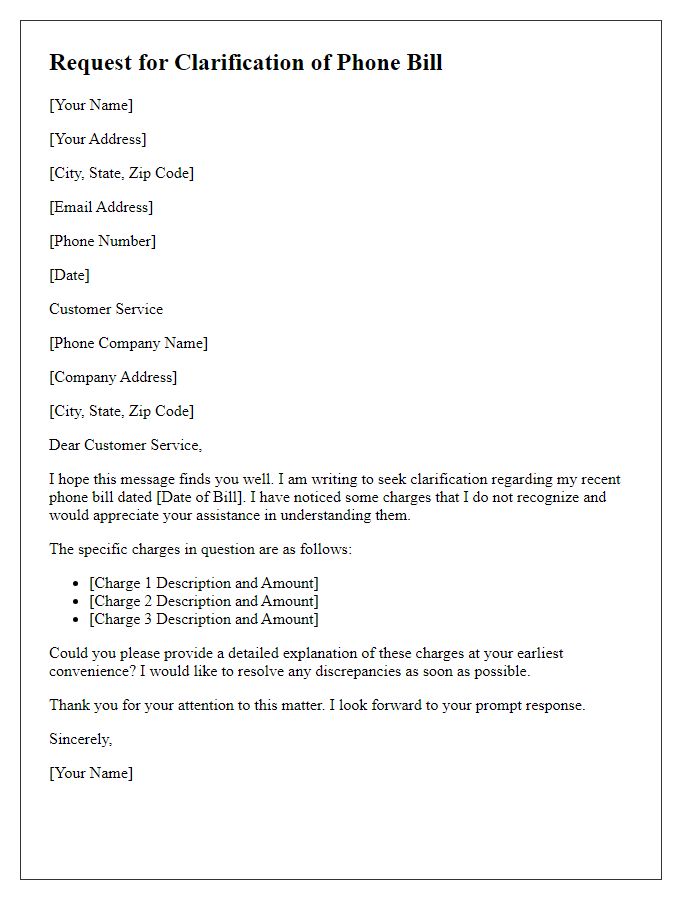
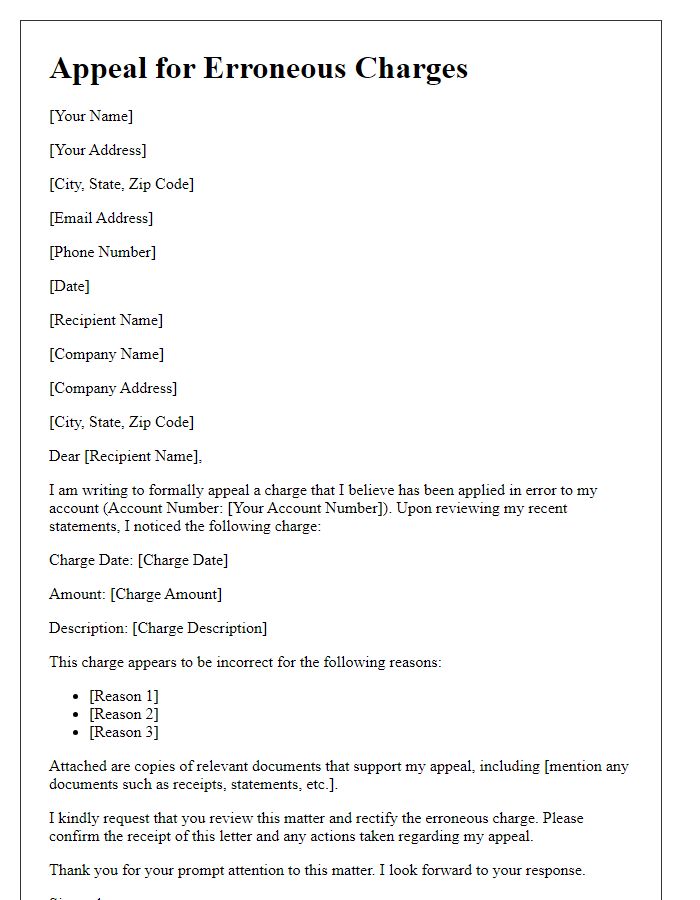
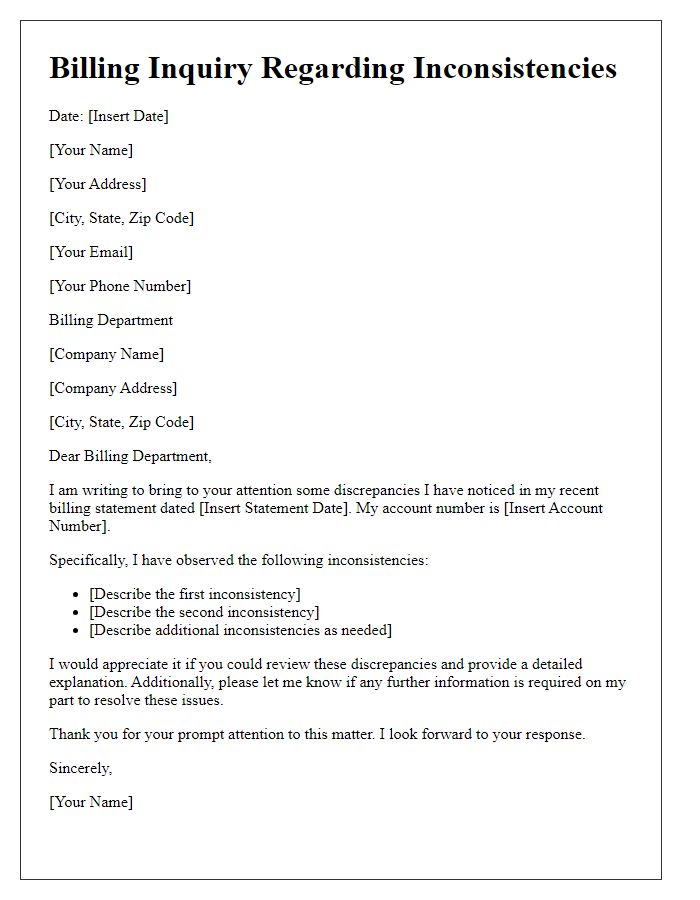
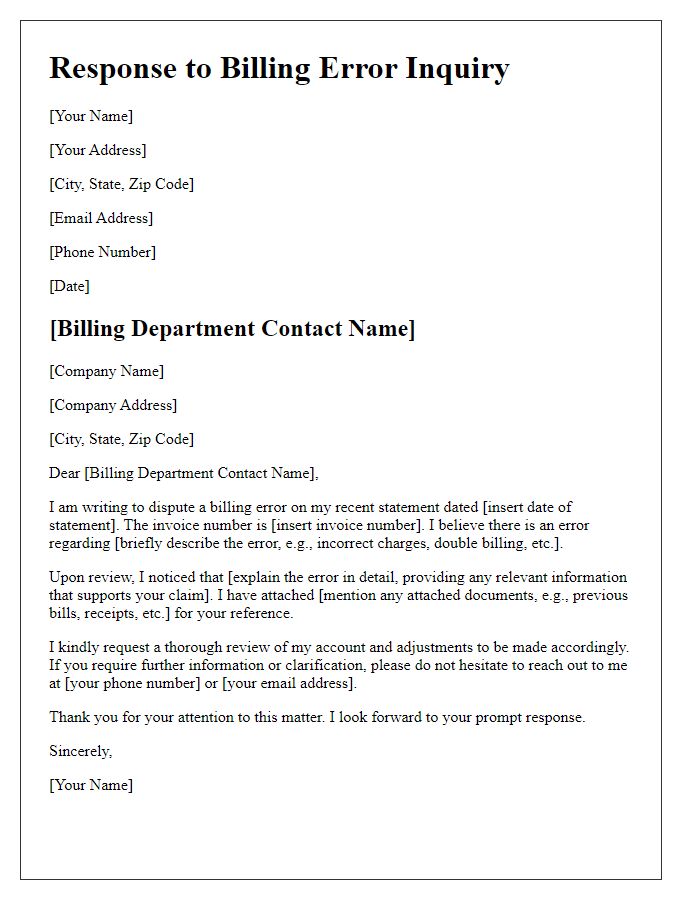
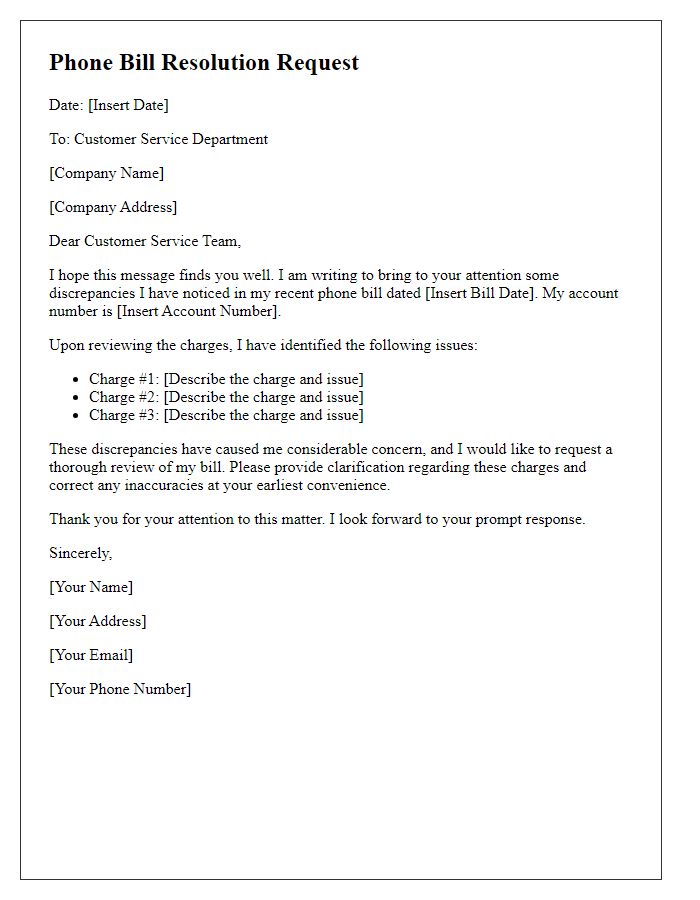

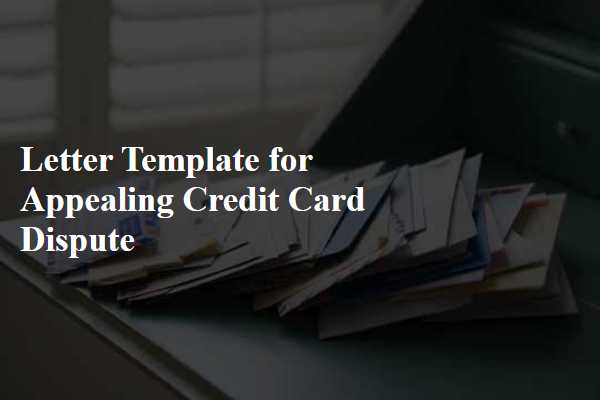
Comments